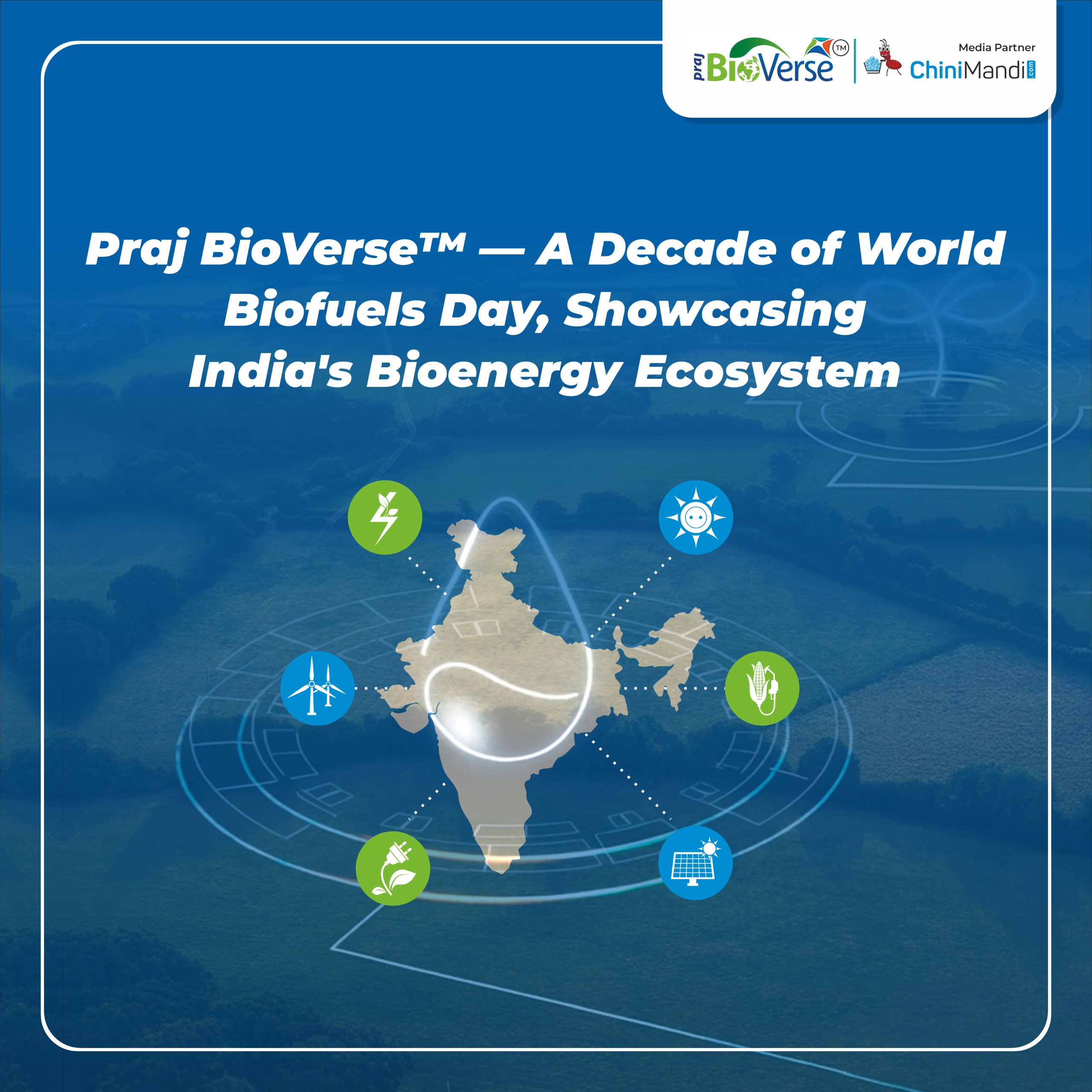On August 11, 2025, Praj Industries unveiled Praj BioVerse™ in Pune, not a typical seminar, but a living, breathing showcase of India’s bioeconomy. Policymakers, industry leaders, researchers, farmers, and citizens walked the full value chain: from feedstock cultivation to biofuel-powered engines, witnessing firsthand how technology, policy, and public engagement converge to drive India’s green energy future.
Dr. Pramod Chaudhari, Praj’s Founder Chairman and widely known as “The Ethanol Man of India,” presented BioVerse™ as more than a demonstration; it’s a movement where innovation, research, end-use applications, and public literacy intersect.
Hon’ble. Union Minister of Road Transport and Highways, Shri Nitin Gadkari inaugurated the Experience Gallery, showcasing biofuels as a tool for energy self-reliance, rural prosperity, and emissions reduction. His presence reinforced the event’s message: scaling bioenergy is as much a national imperative as it is a technical challenge.
What made Praj BioVerse™ exceptional was its focus on tangible, real-world demonstrations. “The Experience Gallery” offered an end-to-end walkthrough: feedstock-to-fuel displays, co-product pathways, process modules, and operational applications.
Stakeholders across the ecosystem played visible roles — Vasantdada Sugar Institute (VSI) led feedstock research and intercropping techniques; Praj displayed its indigenously developed technologies for biofuels and value added co-products; Toyota Motor Corporation and Hero MotoCorp showcased flex fuel vehicles; and Automotive Research Association of India (ARAI) showcased vehicle and fuel standards. Vehicle preparedness for higher ethanol blends was on full display, with Toyota showcasing 2 popular flex car models and Hero Motorcorp flex-fuel models ready to run on E10 to E100.
Together, they transformed policy and innovation into certified, high-performance solutions that are safe, reliable, and ready for real-world adoption.
The vehicles showcased, Hero HF Deluxe Flex Fuel, for example, is a powerful endorsement of ethanol as a mainstream fuel while retaining its impressive 70 kmpl mileage. In other words, switching to ethanol does not mean sacrificing performance, efficiency, or reliability. Instead, it demonstrates that ethanol-blend technology is ready for mass adoption, proving that cleaner fuels can ride shoulder-to-shoulder with petrol without compromise.
Some of the most striking moments went beyond transportation fuels where Hon. Minister Nitin Gadkari inaugurated Kirloskar Oil Engines demonstrated a 100% ethanol genset for industrial and agricultural applications, highlighting bioenergy’s potential across sectors, from infrastructure to mobile towers. Display of 100% Bio-IBA based engines was also an attraction of the experience gallery. It is interesting to note that the non-mobility sector accounts for about 4000 cr litre of fossil fuels potentially can be replaced either by ethanol or by Bio-IBA.
Compressed Biogas kits for tractors and India’s first Sustainable Aviation Fuel (SAF) flight powered by locally produced SAF signalled ambitions far beyond conventional ethanol blending.
The farming community remained central to the story. The rise from single-digit ethanol blend a decade ago to 20% blend today links to forex savings, farmer payments, and feedstock strategies.
Bioenergy is not just a transport story—it’s an industrial, agricultural, and decentralised energy solution. With government, research institutes, manufacturers, and end-users collaborating, India is emerging as India’s hub for Biofuels innovation and application.
Recent debates around E20 blends raised questions on supply, pricing, and vehicle compatibility. Praj BioVerseTM experience gallery addressed these doubts, proving the success story must continue, extending beyond mobility to agriculture, industry, and decentralised energy.
While India has made remarkable strides in ethanol adoption, challenges remain: differential pricing, calorific value–based pricing, and lessons from global players like Brazil and Thailand. The conversation is shifting from availability to sustainability, efficiency, and long-term strategy.













